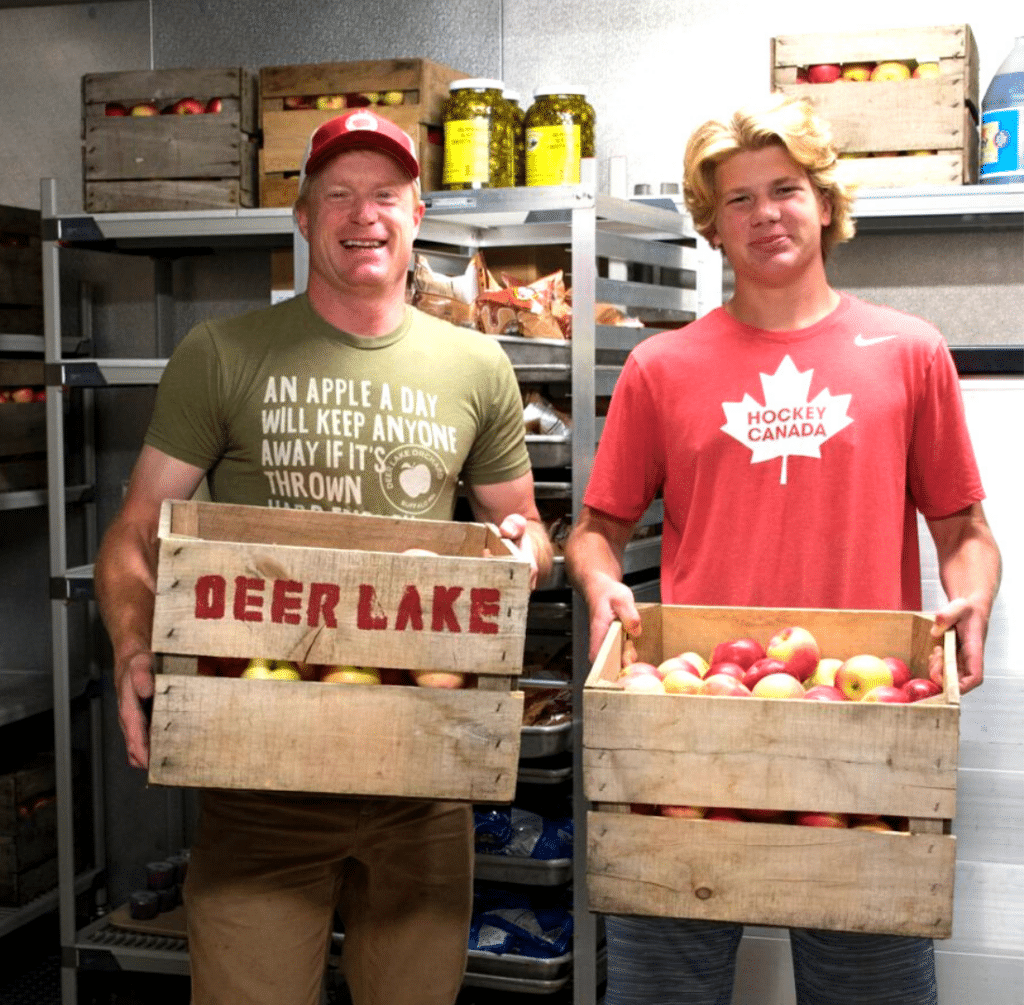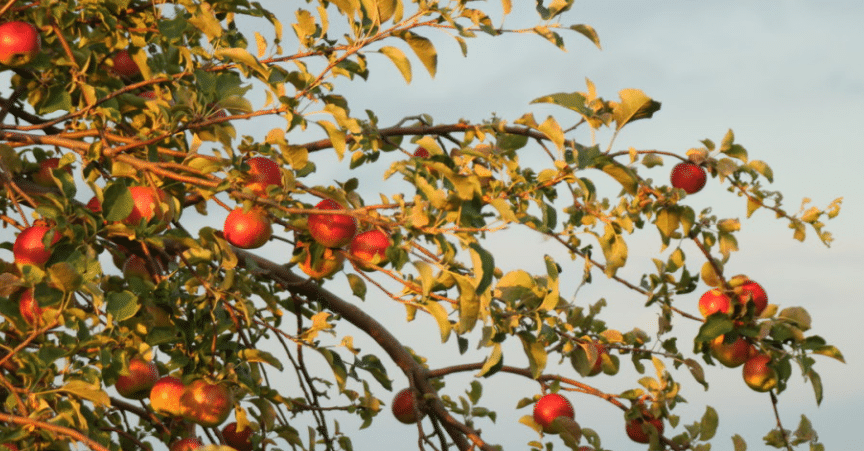Throughout the month of October we have been partnering with Midwest Dairy to host 5 virtual field trips to celebrate Farm to School month. We want to meet farmers who are providing food that many students get to eat in their school cafeterias and food service programs.
We met with Deer Lake Apple Orchard near Buffalo, Minnesota and owner, Yuri Preugchas. Yuri owns and operates the orchard with his wife Jill and 6 kids!

Apple trees were first planted in the orchard in the late 60’s making it one of the oldest orchards in Minnesota. The orchard is over 20 acres large and there are close to 8,000 trees in those 20 acres! That makes for a lot of apples and a lot of work. 28 different varieties of apples grow at Deer Lake Apple Orchard and that includes Honey Crisp and Sweet Tango, Zestar, Haralson and Fireside.
On a good day Yuri and his family and staff will pick 100 bushels of apples. In every bushel there are about 40 pounds of apples and it takes about 100 apples to make 40 pounds. That is a lot of apples to be picked every season and it all needs to be done by hand!

The average lifespan of an apple tree is 25 years. The first 5 years are spent growing and then the next 20 years most apple trees will produce lots of apples.
Taking care of the trees is super important. That includes the soil and water. Good water and enough water are critical to the health of the trees at Deer Lake Apple Orchard. The soil at Deer Lake Apple Orchard is heavy, so it holds water well and extra watering isn’t usually needed.
One of the most important things every orchard needs is bees! Every spring 40 hives of bees are brought to the orchard and if the weather is right those bees will pollinate the apple trees in one or two days.
There are also non-friends of the orchard too and those include wasps. Wasps can damage the apples by eating them. Deer also damage the trees in the orchard in the winter, so to keep the trees safe special fencing is put up. Some other animals that do damage to the trees are rabbits and mice. They eat the bark of the apple trees and if they eat too much they can kill the tree.
It takes a lot of work to grown healthy apples, but the reward is worth it! Next time you eat an apple just think, it may have come from a hard working farmer in Minnesota!
Feeling inspired? Try this easy apple croissant recipe!

